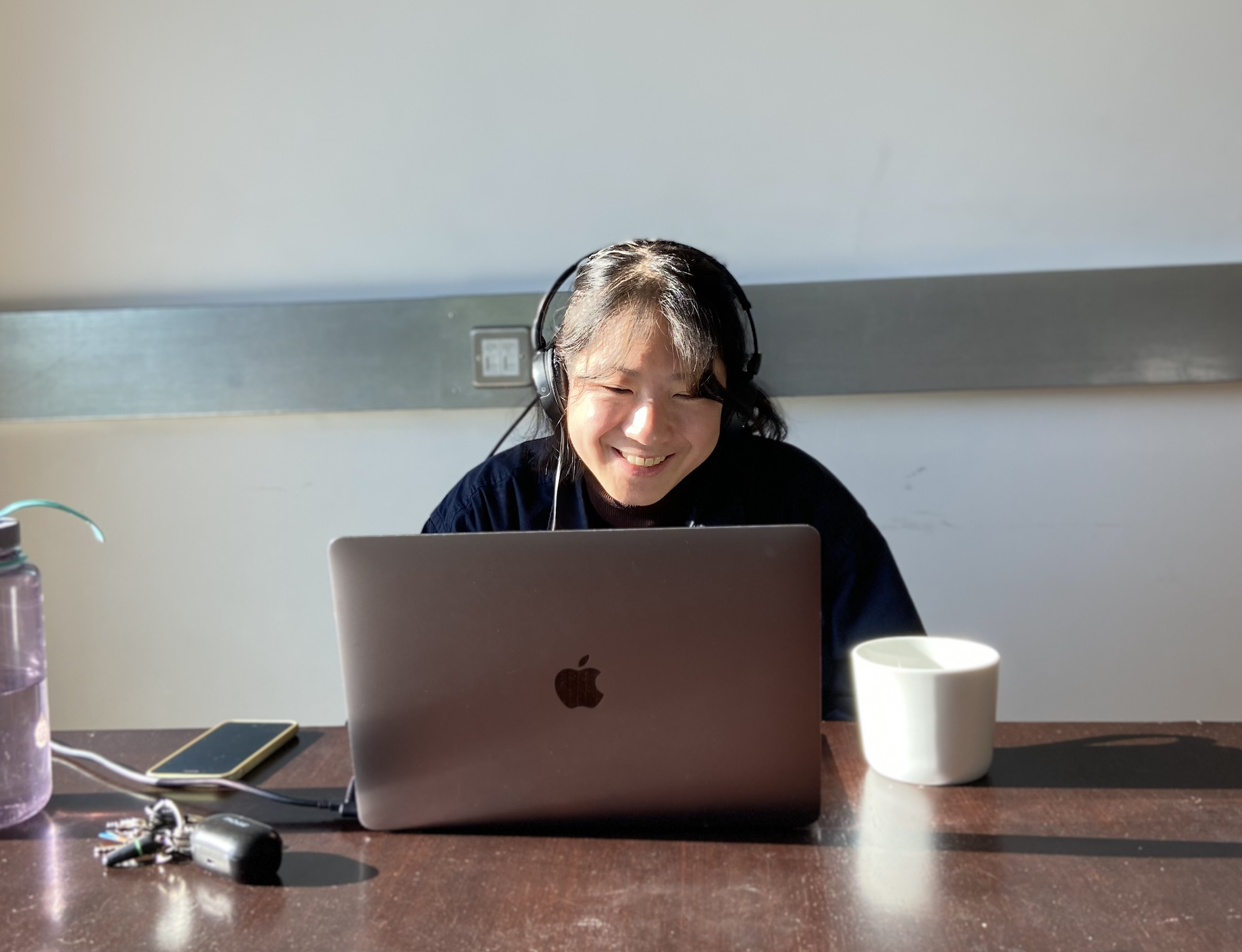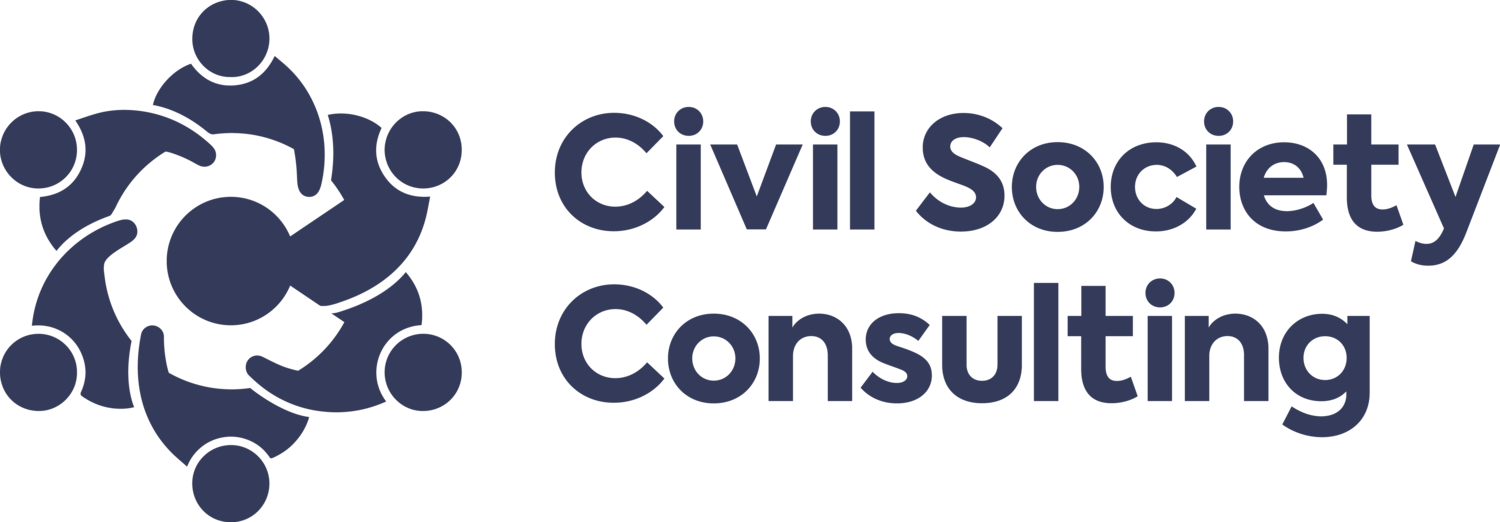
We provide free support to grassroots organisations through our flagship initiative, Nurturing The Grassroots.
What is Nurturing The Grassroots?
Nurturing The Grassroots (previously called Steps to Sustainability; S2S) is a capacity-building programme with a difference - it’s all about hands-on support and 'learning by doing'.
We provide free 1-to-1 consultancy support and coaching to grassroots organisations that are led by and for marginalised communities. Together, we will co-produce up to five tangible outputs e.g., an impact report, a new website, or strong organisational policies. Organisations move through the programme as part of a cohort, building strong supportive relationships through group workshops and monthly catch-ups; participants meet a wider network of sector professionals through regular coffee clubs.
Our current programme
Over the last four years, we have delivered four different iterations of Nurturing The Grassroots. Between 2023 and 2025, we have been delivering Kinder Communities: Steps to Sustainability (S2S) — a National Lottery-funded capacity-building programme for up to 70 organisations led by and for marginalised communities, focusing on those in the North of England.
Organisations progressed through the programme in cohorts of up to ten, so that they developed meaningful connections with other participating organisations, and leave with peer support networks.
In May 2025, we’ll be re-launching a new iteration, called Nurturing The Grassroots.
Why Nurture The Grassroots?
Grassroots organisations in marginalised communities are immensely valuable to society. By ‘grassroots’ organisations, we mean non-profits that are led by the people and community they’re seeking to support, usually locally. They are: agile, deeply motivated, trusted by their communities and extremely knowledgeable of their needs.
Despite their immense value, many grassroots organisations achieve what they achieve against the odds. If properly supported, they have even greater potential. It’s particularly tough out there for grassroots organisations led by and for marginalised communities:
People and processes are biassed towards larger, more established organisations. Institutions in the sector that control the resources often lack diversity and therefore understanding of the context of life in marginalised communities - so their processes are not accessible.
In organisations led by marginalised communities, leaders and staff are themselves experiencing structural disadvantages, so they have less capacity and less access to resources.
We developed the Steps to Sustainability (S2S) programme to support, catalyse and energise grassroots organisations, so that they can survive and thrive, leveraging positive social impact in the communities that they know and love. S2S was developed during the pandemic (formerly known as Steps to Recovery). Since coming ‘out of the frying pan and into the fire’, the support is needed more than ever.

-
To survive and thrive, grassroots organisations need capacity, resources, organisational sustainability, skills and confidence.
There are a few things that set S2S apart from other capacity building programmes:
Learning by doing, rather than training-oriented: we feel it’s a misconception that grassroots organisations lack skills per se. Rather, they need support to develop ‘mental blueprints’ and confidence for certain processes. Therefore, it makes more sense to work with the organisation to co-produce the output, rather than tell them how to do it and send them off to do it on their own!
Hands-on support: we directly provide additional capacity overstretched grassroots organisations lack, which makes organisations feel valued and means they come away from the programme with tangible results
Led by the organisation: each organisation develops according to its strengths and its own ‘organisational personality’ - and not to fit some particular mould set by funders.
Relational coaching: we give organisations the time and attention they need to effectively coach them, and help them forge meaningful connections with each other too, Organisations feel valued and energised.
-
The end-to-end journey of S2S for each organisation looks like this:
Onboarding: organisations complete baseline survey for organisations to complete in advance of their first consultation to prepare advisors for the session.
1-to-1 advice sessions and discussions to identify up to five priorities and a five-point plan. At this stage, the group will be allocated an advisor from the CSC team, who will be their main/first point of contact throughout.
Hands-on follow-up support: organisations work with the CSC team to co-produce up to five tangible outputs (e.g. website redesign, a communications strategy, or an impact report).
Group workshops, through which organisations connect with other members of their cohort, as well as funders and experts, and receive interactive training on: Communications, Loneliness theory, Governance, Income Generation, Theory of Change.
Staying in touch: organisations stay in touch via regular online coffee club meetings and biannual catch ups with their dedicated CSC team members. A number of organisations have gone on to secure funding to scale their initiatives, and commissioned us to evaluate!
-
We work with organisations to identify their priorities, and establish five outputs we’re going to co-produce together. We keep talking about co-producing tangible outputs! What do we mean? Typical outputs include:
Community engagement exercises
Funding applications
Impact reports
Organisational strengths reviews and strategy development
Communications strategies
Communications materials and website redesigns
Upgrading systems and processes
Housekeeping: constitutional documents and policies for passing funders’ due diligence checks
Partnership development.
Click here to see some highlights from S2S.
-
We all remember the start of the pandemic. Within weeks, Covid-19 brought the UK’s long-standing inequalities into plain sight, and, over the course of the two years, widened them further. We started the first iteration of S2S to reduce the inequity within the charity sector. We saw that not only were marginalised communities disproportionately affected by the pandemic, organisations led by and for them were least well-equipped to survive and thrive during the pandemic. We wanted to intercept this self-perpetuating cycle of widening inequalities.
S2S started small but snowballed due to the need for it: we have been running different iterations of the programme since 2020. The UK Government saw the potential of grassroots organisations at this point too, and leveraged them through the ‘Community Champions’ programme. Community Champions was a strength-based approach to tackling vaccine hesitancy. Given many disadvantaged communities’ low trust in public services, the government called on civil society organisations to deliver public health messaging to communities they were embedded in. To work, the Government recognised that Community Champions needed to be supported as well as leveraged. The CSC team was called in to deliver S2S and provide that support.
To reduce health inequalities - and the social determinants of those health inequalities - we need to support, catalyse and empower grassroots organisations.
-
So far we’ve worked with 127 grassroots organisations led by and for marginalised and disadvantaged communities. By developing them holistically, we helped them secure more than £1.45 million of funding. We’ve reached an additional 466 organisations through our free capacity building webinars.
Since completing our programme:
92% of organisations are more confident about their ability to flourish and continue to support their community in the future;
96% won funding from charitable trusts;
87% enhanced their systems and delivery;
100% reached and supported more organisations who need them.
-
The CSC team are proud of what organisations supported through S2S have achieved. We have created a fantastic network of change-makers through Steps to Sustainability - and we have perfected our delivery model. We invite you to leverage the programme in your work.
How you can leverage S2S will depend on who you are. Are you…
A funder?
Substantial and robust capacity-building is a top priority for funders looking to be more equitable and inclusive. Capacity-building is crucial for a good balance of power in the long run.
Steps to Sustainability is a unique capacity-building programme, which funders can implement flexibly, easily and affordably. Skip to 2 ‘Why this approach’ to find out why S2S is a fantastic way to capacity-build your grantees. If you’re interested in using S2S as a way of delivering ‘funders plus’ or ‘grants plus’, contact one of our directors to hear the pitch.
A business who wants to engage with the communities around them?
We understand how tricky executing CSR can be. With limited budgets, you may be restricted to funding individual projects, which can feel like a drop in the ocean. There may be conflicting views in your team about how much the spending benefits your company and you may have limited capacity for managing the budget too. Supporting grassroots charities led 'by and for' marginalised communities in your local areas is an effective way to overcome some of these challenges to get the most out of your CSR/ESG budget.
The benefits of this approach are that (unlike funding individual projects) you’re actually investing in the communities around you. Therefore, you can be confident it will have a multiplier effect for communities and your company in the short, medium- and long-term. It’s also a way to build your own network of ‘community champions’, which have unparalleled access to the communities you find “hard to reach”, which can be of value to your company. It is high-impact, but also cost-effective too. Request our pitch deck and/or book a call.
A grassroots organisation led by and for a marginalised community?
Of course, if you ARE a grassroots organisation, the best way to be involved is to get yourselves on one of our cohorts. Sign up to our newsletter to hear news of our next intake.








